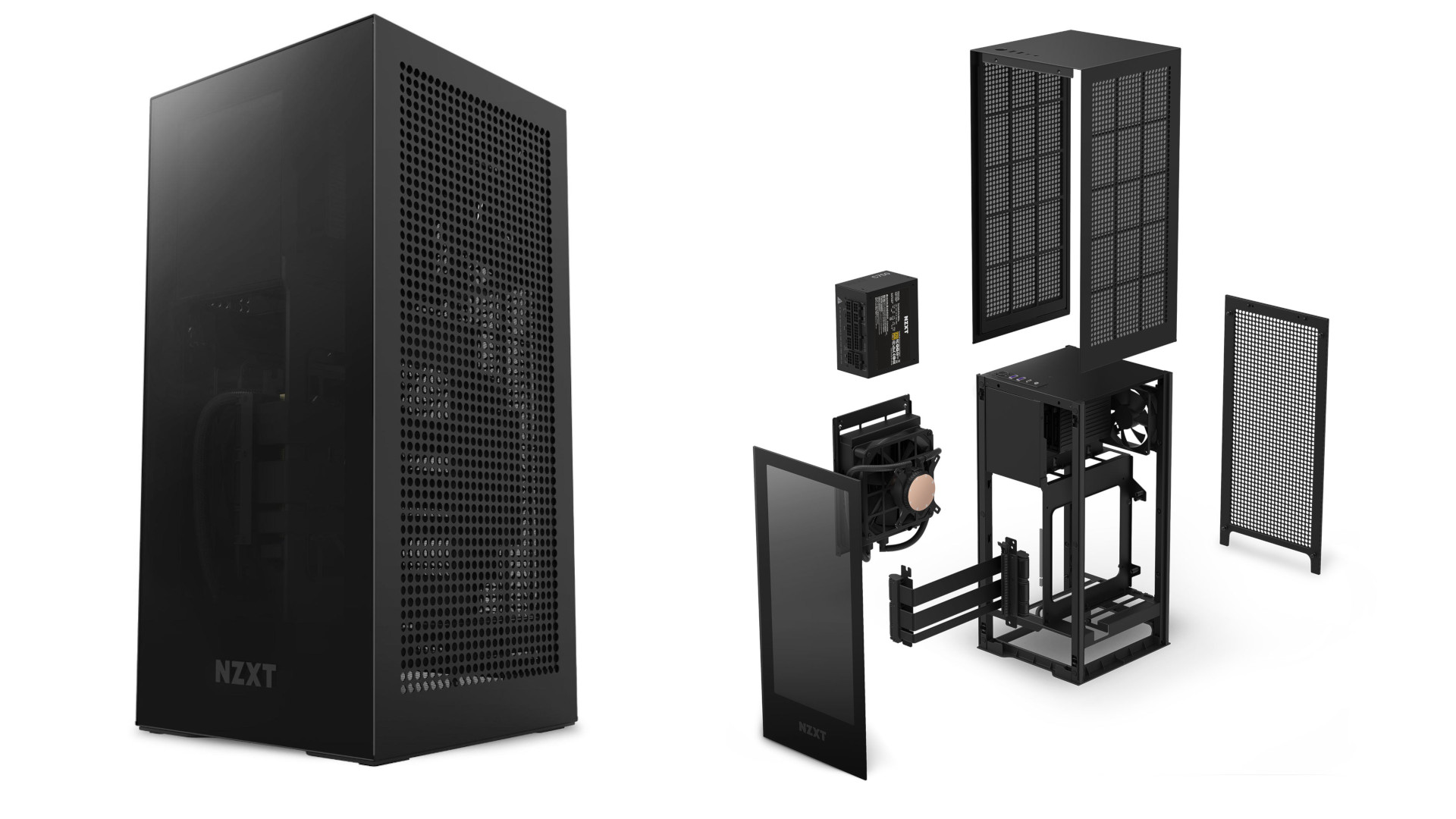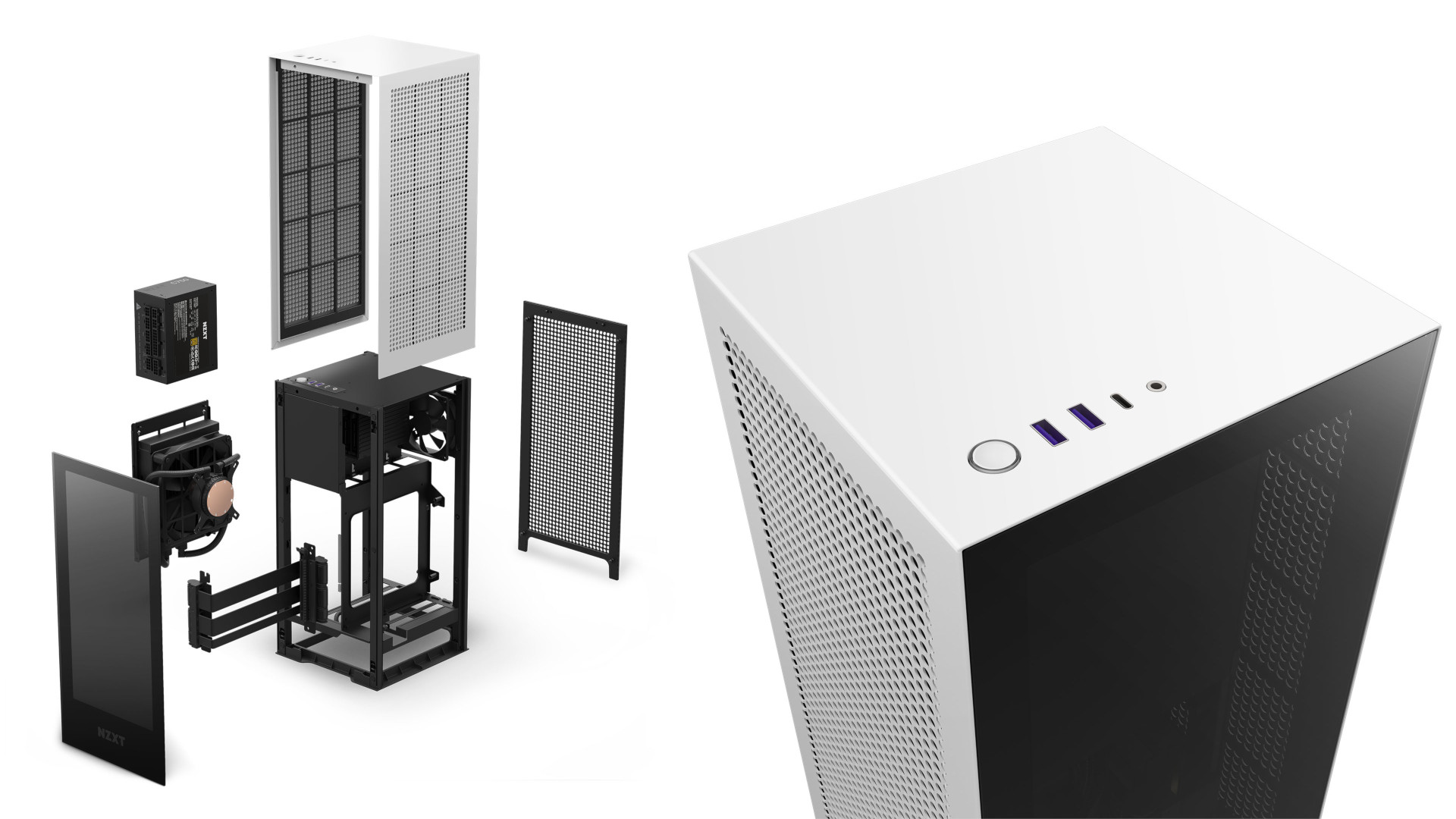PC builders rejoice – NZXT H1 has returned
Full-tower cases are dead – long live small form factors

Sign up for breaking news, reviews, opinion, top tech deals, and more.
You are now subscribed
Your newsletter sign-up was successful
NZXT has announced that its iconic H1 PC case is being relaunched as the H1 V2, offering a built-in power supply, AIO CPU cooler and riser cable within a compact design that can free up precious space on your desk or floor.
The H1 V2 will go on sale on Feb 21 for $399.99 / €399.99 / AU$599.99 (roughly £340) on the NZXT website and is available in either white or black to match other products within the monochromatic NZXT family.
While this feels pricey for a PC case, it's certainly not unheard of as specialized cases can cost a pretty penny, and it's worth noting that you're also getting a 750W Gold rated SFX power supply, Gen 4 PCIe Riser cable and an AIO CPU cooler included for that price.
It's also worth considering that this will take most of the frustrations out of building into an unusually-shaped case, negating the need to carefully look up dimensions for a CPU cooler, as well as the lack of market variety currently available for small-form-factor power supplies. Better yet, this new version of the H1 is slightly larger to offer improved airflow and allows the installation of most of the best graphics cards on the market despite that compact size.

The H1 V2 still retains most of the stylings that made it so desirable when it first launched back in 2017, with a compact 'tower' style build that many have compared to the Xbox Series X console. That version had to be recalled due to issues with the PCIe riser cable, but its absence was sorely felt by those who appreciated its unique design and compact size.
To put your mind at ease, NZXT addressed this within the official launch press release, stating: "We have reworked the original riser design from the H1 and learned a great deal from the original case and listened to community feedback. The H1 features a custom-designed PCB and we worked closely with a new vendor, using a more rigorous QA process to make sure each H1 upholds high quality and safety standards."
Opinion: full tower cases are old news
If you've been present in the PC gaming or building scene for a while, then you're likely familiar with hulking full-sized ATX cases. These used to be more prevalent back in the early 2010's as people prioritized space for expansion and airflow, as well as just being the favored style of the time.
Sign up for breaking news, reviews, opinion, top tech deals, and more.
Fast forward to the last few years though, and you'll notice that PC cases are getting smaller and more modular, allowing enthusiasts to create compact builds without having to sacrifice thermals or performance. Motherboards and power supplies are getting smaller to accommodate modern demands too, leaving full-tower PC cases looking a little dated.
They still have their place of course – it's easier to build custom water-cooling loops into a larger case, but even mid-sized towers are capable of that kind of modding. As Covid has pushed more of us into working from home, space is becoming a precious commodity.
I'm willing to bet that more brands are going to start releasing small-form-factor cases to appeal to this new market that wants to cram the full power of a PC into a discreet build, especially one that can accommodate a full-sized GeForce RTX 3090 and suitable power supply to run it.

Jess is a former TechRadar Computing writer, where she covered all aspects of Mac and PC hardware, including PC gaming and peripherals. She has been interviewed as an industry expert for the BBC, and while her educational background was in prosthetics and model-making, her true love is in tech and she has built numerous desktop computers over the last 10 years for gaming and content creation. Jess is now a journalist at The Verge.